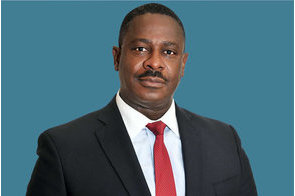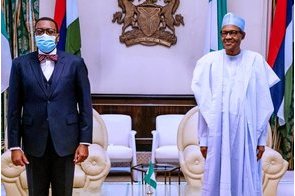IMF grants debt relief for 19 African countries

Summary
The purpose of debt relief under the CCRT is to free up resources assigned to debt service to meet exceptional balance of payments needs of poor countries hit by natural and public health disasters.
The Executive Board of the International Monetary Fund (IMF) has approved immediate debt relief for 25 low-income countries, including 19 in Africa. In a statement released on Monday, IMF's Managing Director, Kristalina Georgieva, said the relief package was granted to member countries under the IMF’s revamped Catastrophe Containment and Relief Trust (CCRT) as part of the response to help address the impact of the COVID-19 pandemic.
According to the IMF, the purpose of debt relief under the CCRT is to free up resources assigned to debt service to meet exceptional balance of payments needs of poor countries hit by natural and public health disasters. The African countries that have received the grants for debt relief are Benin, Burkina Faso, Central African Republic, Chad, Comoros, Democratic Republic of Congo, The Gambia, Guinea, Guinea-Bissau, Liberia, Madagascar, Malawi, Mali, and Mozambique.
Others are Niger, Rwanda, São Tomé and Príncipe, Sierra Leone, Togo. The other recipients of IMF’s debt relief outside the continent are Afghanistan, Haiti, Nepal, Solomon Islands, Tajikistan and Yemen.
“The CCRT can currently provide about US$500 million in grant-based debt service relief, including the recent US$185 million pledge by the UK and US$100 million provided by Japan as immediately available resources,” said Georgieva. “Others, including China and the Netherlands, are also stepping forward with important contributions.”
Last week, Nigerian Minister of Finance, Budget and National Planning, Zainab Ahmed, disclosed that Nigeria was seeking to raise $7.05 billion, including a $3.4 billion loan from the IMF, to tackle the impact of COVID-19 in the country. In a statement acknowledging Nigeria’s application for its facility, the IMF's managing director said Nigeria had requested financial assistance under the Fund’s Rapid Financing Instrument (RFI), which is a $40 billion facility earmarked for emergency disbursement to emerging market countries to address the economic shocks of the novel coronavirus.
The IMF chief said it is working hard to respond to Nigeria's request. The other multilateral institutions Nigeria plans to raise funds from are the World Bank ($2.5 billion) and African Development Bank ($1 billion).
Reacting to the debt relief package announcement, Nigeria’s former Finance Minister and Coordinating Minister for the Economy, Ngozi Okonjo-Iweala, applauded the move by the IMF. In a statement she posted on Twitter yesterday, she, however, noted that there was a need for more to be done as “African countries must have fiscal space to tackle #Covid19!” Okonjo-Iweala was appointed on Friday by Georgieva into her team of External Advisory Group (EAG), which comprises of some eminent individuals from around the world that will advise the IMF chief on policy responses to address the economic impact of coronavirus.
The IMF’s managing director also urged other donors to help to replenish the CCRT’s resources to further boost the Fund’s ability to provide additional debt service relief to the poorest countries for two years. Currently, the grants will provide the vulnerable members the ability to cover their IMF debt obligations for an initial period of six months. In this period, the IMF said they can channel more of their scarce financial resources towards addressing vital emergency medical and other relief efforts.
Related
-
DFIs pledge $80 billion investments in African businesses over the next five years
DFIs play an important role in helping to build markets, mitigate risk and pave the way for other investors to enter new ...
-
AfDB’s new 5-year strategy for Nigeria to tackle Covid-19 economic shocks
The 2020-2024 CSP has two key priority areas for Nigeria, namely infrastructure development and social inclusion through ...
-
World Bank expands protection for people and environment in project financing
The Environmental and Social Framework is part of far-reaching efforts to improve development outcomes.







